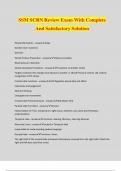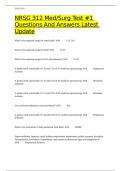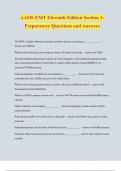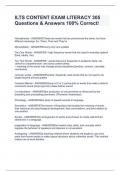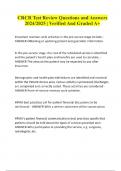Exam (elaborations)
BSW4801 Assignment 1 & 2 2024 (Full report with all chapters)
- Institution
- University Of South Africa (Unisa)
100% accurate and reliable assignment solutions for BSW4801 assignment 1 &2 2024: Full report for Topic 2: Exploring the consequences of trauma among women living in urban communities
[Show more]





